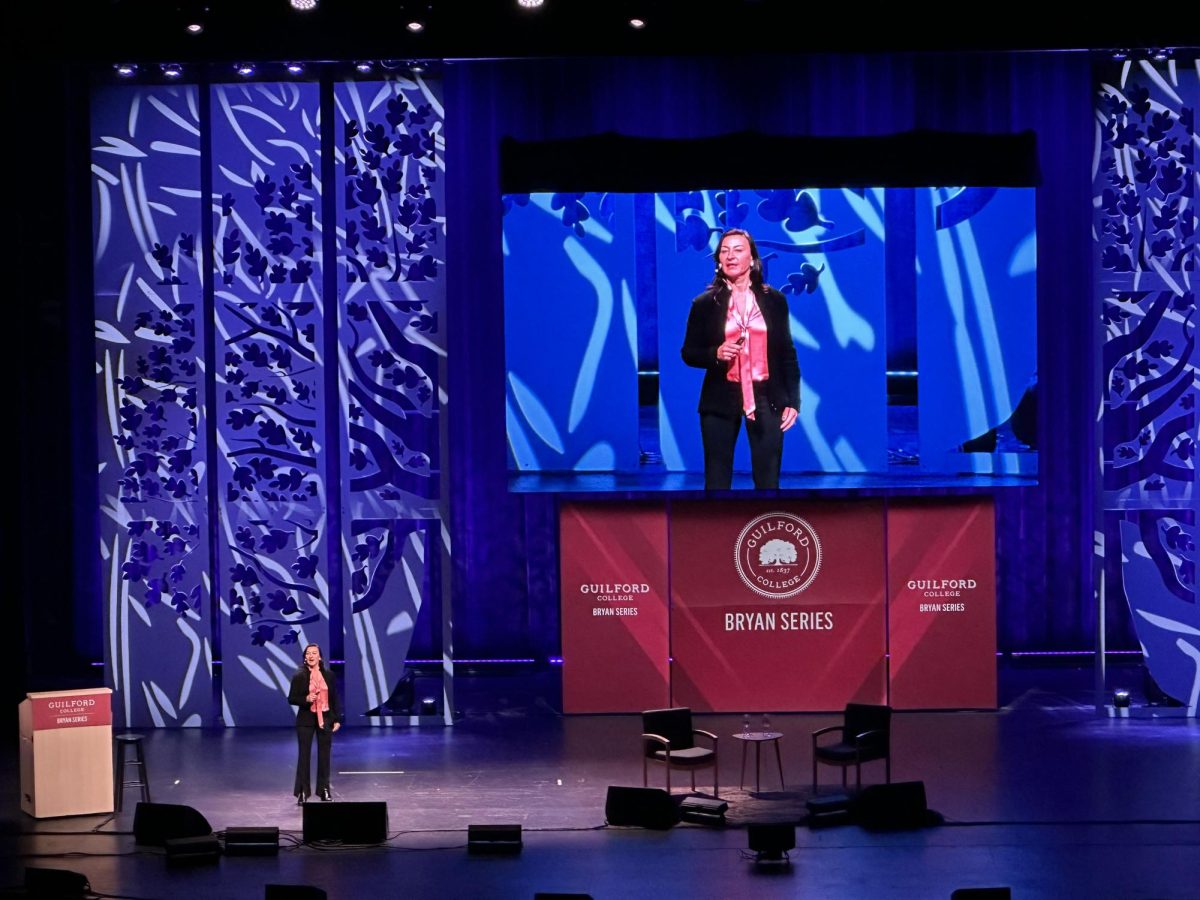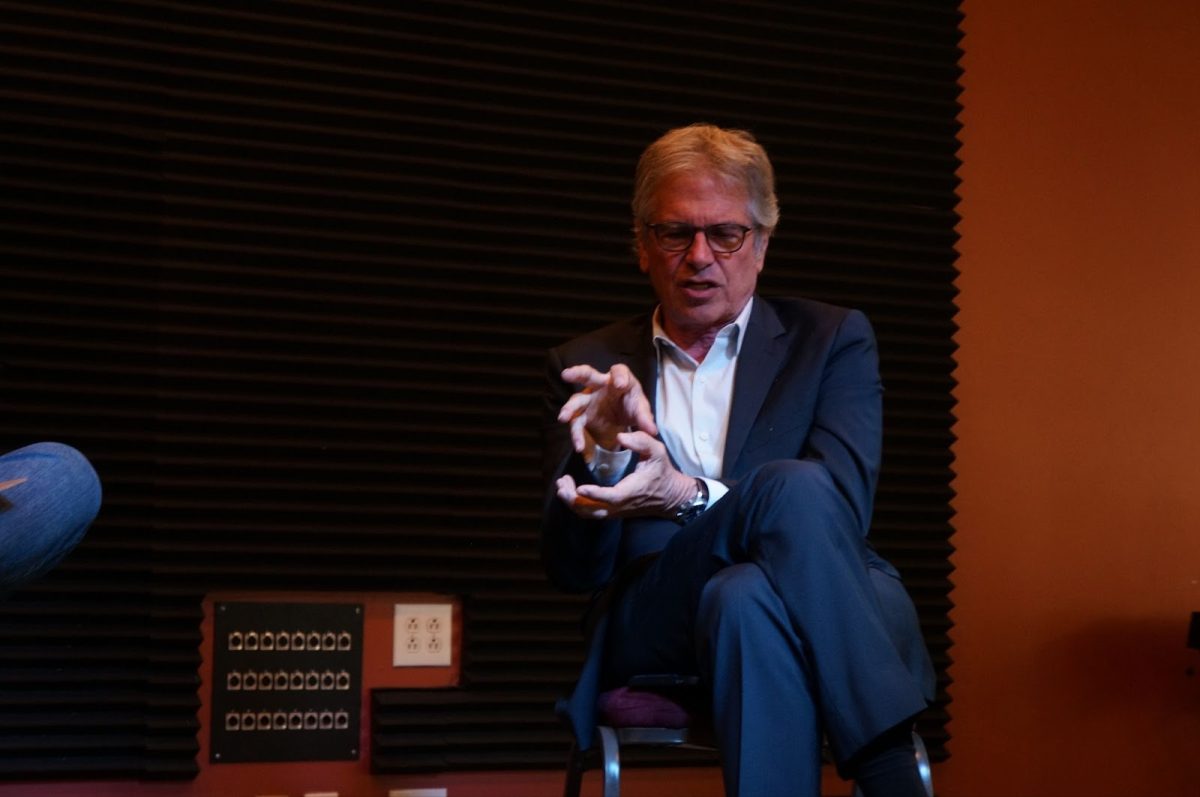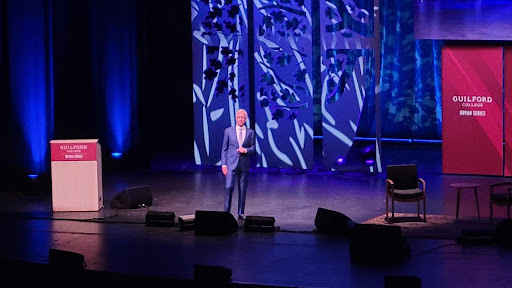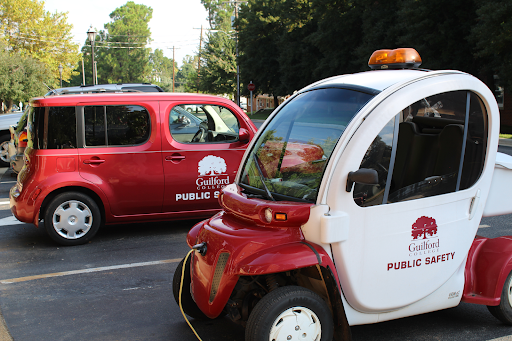Exciting new opportunities are on the horizon for English majors. On April 1, the English department transformed into the department of English and creative writing and will allow students to switch their major or minor to creative writing.
Students who choose to major in creative writing will have an opportunity to explore a wider approach to writing and express themselves and pursue writing in unique ways.
“Students have been really asking for a creative writing major,” said Assistant Professor of English Mylène Dressler. “We have always done creative writing very well on campus, but it’s been somewhat submerged. As a department, we did research and polled students to get a sense if this is something they wanted to see at Guilford.
“Thanks to our new $600,000 Anderson Creative Writing endowment, which provides for creative writing scholarships as well as funding to bring outstanding visiting writers to campus, we also now have the infrastructure we need to really support creative writing on campus.”
With the revised English major and new creative writing major, there will be new requirements that will need to be met, such as completing 36 course credits rather than 32. However, current English majors have the choice of sticking to the old requirements.
“The addition of the course credits is designed to bring our program up to expected standards for a creative writing major,” said Dressler. “What we’ve done is reorganize courses we already have in order to create a nice, robust set of classes for the creative writing major along with the addition of a practical application requirement.”
This practical application course will require students to complete an internship or practicum on or off campus or a special on-campus course to provide creative writing majors the opportunity to learn how to make the most of their creative skills in the professional marketplace.
Although there will still be required traditional literature classes, creative writing students will have greater control over what they venture off to study, whether it be with a focus on poetry, novel writing, short fiction or other forms.
The goal: let students express themselves and explore a new range of creative writing.
“I am so excited about the new offering that I can’t even put it into the beautiful, elegant, purpled-prose words that it really deserves,” said junior English major turned creative writing major Katie Holland. “I can say that it has definitely made a difference in how I feel about my time here at Guilford. I feel like the degree is worth more to me, personally, even if it won’t have an effect in the long term on my career.”
An added bonus of the creative writing program is that it will hopefully attract prospective students.
“A greater emphasis on creative writing within the English department … would be a value added for recruitment purposes,” said Dean of Admission and Financial Aid Administration Andy Strickler. “My sense from the road is that I run into a great number of students who are interested in creative writing, so this can be really positive for us.”
With the new changes, many students have already begun the transition.
“So far, many students have contacted us wanting to make the switch,” said Dressler. “I am also hearing from many prospective students about this new program. We have put the word out and are getting a really strong response.”
Even with this new major and minor available, students should not feel pressured to switch since a traditional English major and minor are still available as well. For more information on the creative writing program contact Mylène Dressler at [email protected].






